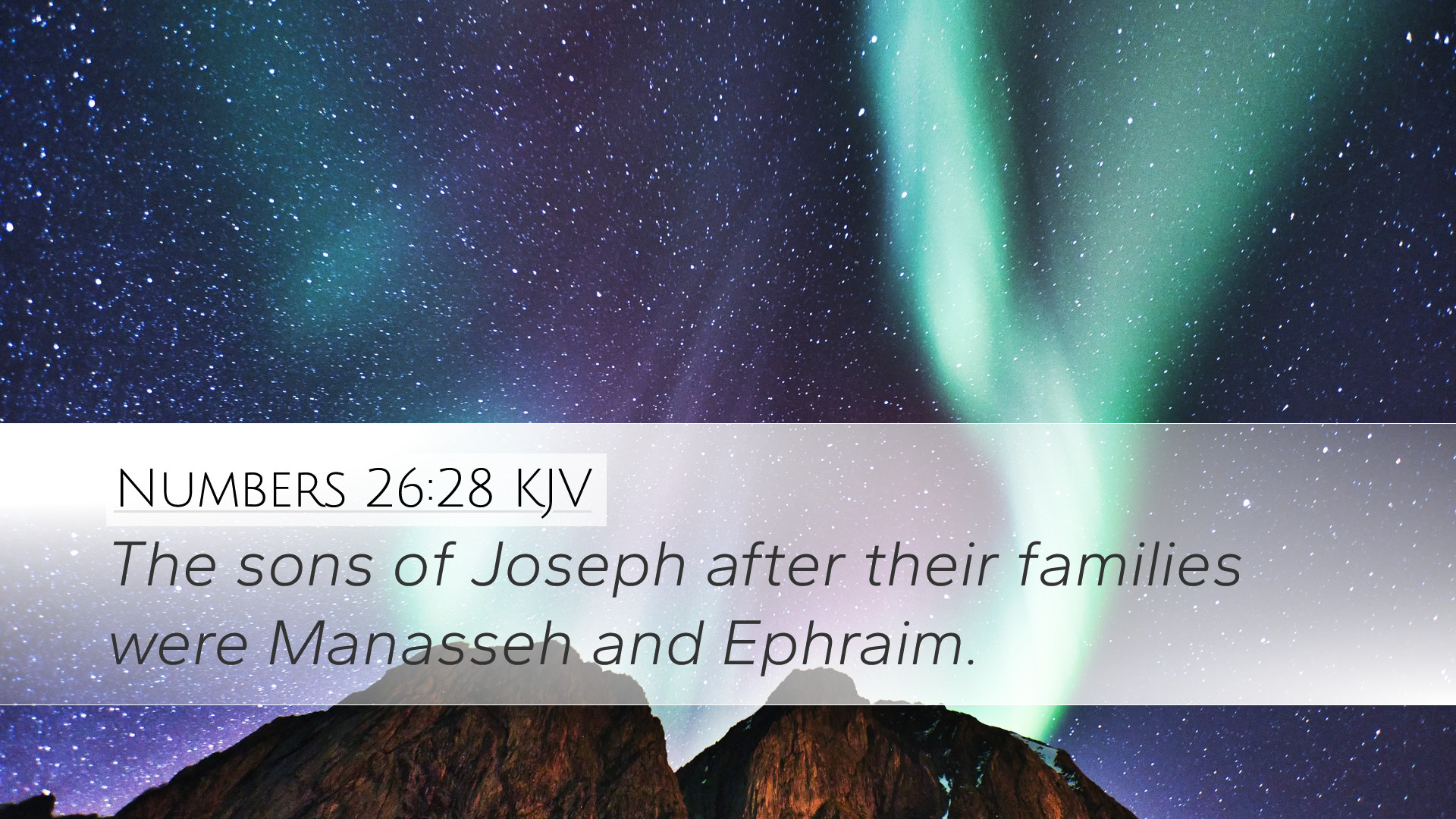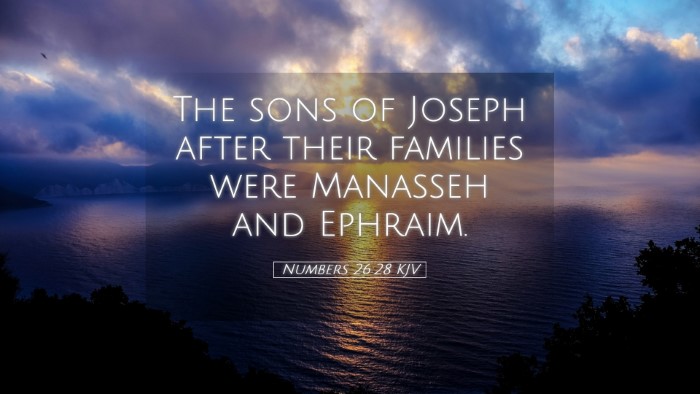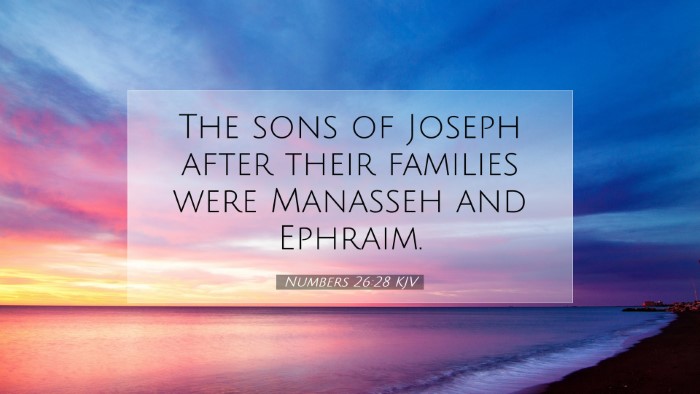Commentary on Numbers 26:28
Bible Verse: Numbers 26:28 - "The sons of Joseph after their families were Manasseh and Ephraim."
Introduction
This verse plays a significant role in the genealogical record of Israel, signifying the descendants of Joseph and the arrangement of the tribes. Various public domain commentaries provide insights that may aid pastors, students, theologians, and Bible scholars in understanding the nuances contained within this passage.
Historical Context
According to Matthew Henry, the historical context surrounding the division of the tribes is essential as it reflects God's promises and prophetic blessings pronounced upon Joseph, which have significant implications for the identity and inheritance of the Israelites. Understanding the lineage roots the reader in the broader narrative of Israel's journey.
The Importance of Joseph's Tribes
- Albert Barnes emphasizes that Joseph's tribes, Ephraim and Manasseh, represent significant portions of the Israelite population. Their prominence signifies not just the numerical strength but also their leadership and influence within the broader context of Israel's history.
- Adam Clarke highlights that the separation into these two tribes comes from the unique blessing Jacob bestowed upon Joseph due to his faithfulness and the trials he endured in Egypt. This underscores the idea of divine favor and the importance of individual legacy within the collective history of the people.
Spiritual Significance
Delving deeper into the spiritual implications, Matthew Henry notes that the mention of Joseph's sons reminds the readers of God's providential care and the fulfillment of His promises. Each tribe served a purpose in the broader narrative of redemption and illustrates the theme of inheritance within the Kingdom.
Theological Reflections
In the theological framework, Albert Barnes points out that the division of Joseph's descendants into two tribes serves as a metaphor for the dual nature of faith—both the potential for greatness and the risk of division. It reflects the complexity of the human condition within the covenant community, where both unity and difference must exist harmoniously.
Genealogy and Identity
Genealogy serves a dual purpose in the biblical narrative: it preserves history while also affirming identity. Adam Clarke explains that understanding one's lineage is critical in ancient Israel, not just for tribal identification but also for issues pertaining to land ownership, inheritance rights, and societal roles, echoing the holistic understanding of God’s covenant community.
Contemporary Applications
- Matthew Henry suggests that modern readers can find renewal in understanding their own spiritual heritage, noting that just as the tribes of Israel had distinct roles, so do individuals today within the Church.
- Albert Barnes points out that this verse acts as a reminder of the faithfulness of God through generations, encouraging believers to trust in God's promises as they reflect on their own family and spiritual histories.
- Adam Clarke encourages a deeper contemplation of the historical context as fostering a robust faith that respects the past while engaging with present challenges, imbuing believers with a sense of purpose and direction.
Conclusion
In summary, Numbers 26:28 serves as a vital link in the broader narrative of Scripture. The insights provided by Matthew Henry, Albert Barnes, and Adam Clarke deepen the understanding of genealogical significance, spiritual implications, and contemporary applications of the verse. For pastors, students, theologians, and Bible scholars, this commentary highlights the importance of lineage and the assurance of God’s providence in fulfilling His promises across generations.


